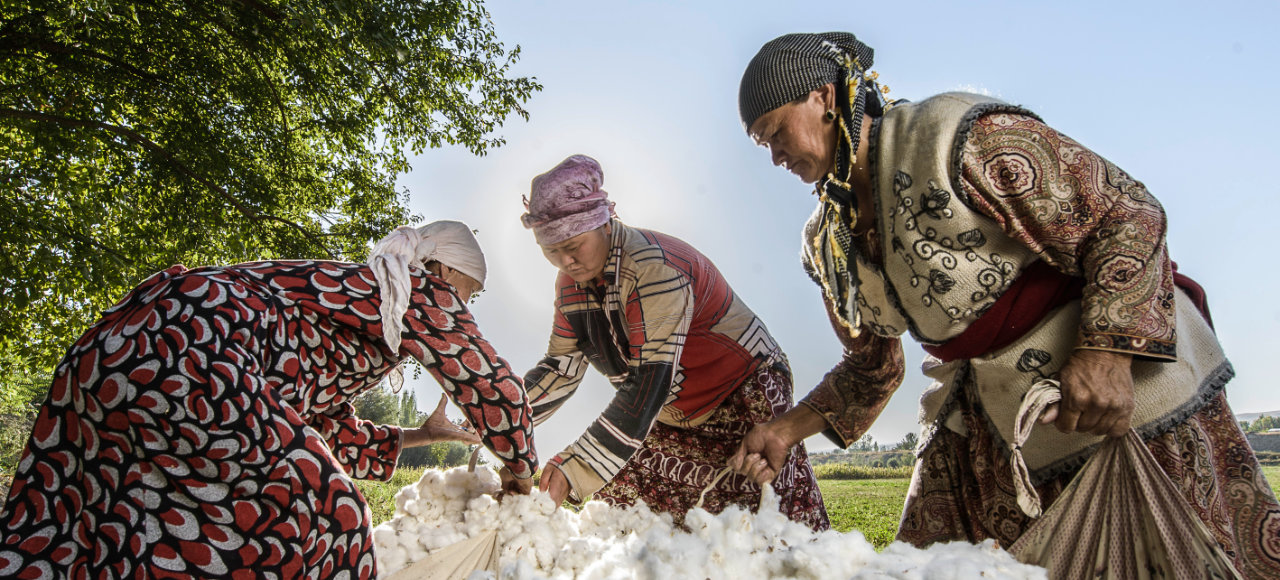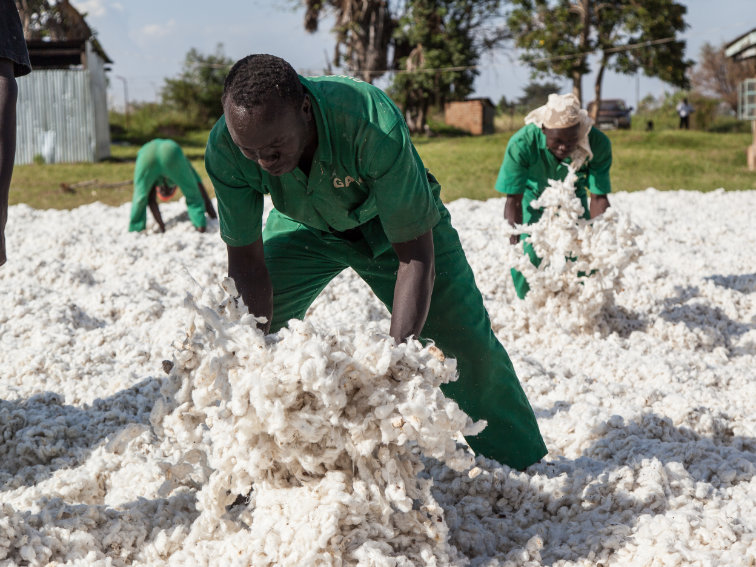
Cotonea organic cotton from Kyrgyzstan
Our Kyrgyz organic cotton is brilliantly white, the fibres are strong and tear-resistant.

Our Kyrgyz organic cotton is brilliantly white, the fibres are strong and tear-resistant.
The fall of the Soviet Union ended the planned economy in Kyrgyzstan in 1989. During this time, the kolkhozes became smallholder farms. To make a living, the people had to reorganise and find a new orientation. Since 2010, Kyrgyzstan has been a not very stable parliamentary republic, corruption is widespread. 37% of the people live below the poverty line. The north is richer than the south. Jalalabad lies in the south-west of the country, near the border to Uzbekistan. The climate is extreme: here you have icy winters and very hot summers. The vegetation period is very short - also for cotton.
It was a little stroke of luck, that Cotonea was a partner of this cotton project practically from the start. Although we did not collect the first three harvests during this time of change, we could add our knowledge and experience to this project from the beginning. The first “real” organic cotton harvest was brought in in 2007 and delivered to Cotonea at the beginning of 2008. The harvest only weighed just about 40 tonnes. But it was a start. Despite many setbacks, it has been possible over the years to consistently improve the quality and to produce good organic cotton. The farmers can rely on us buying the cotton from them, which is a big advantage for them.
The journey from Germany takes about two days. The journey by car from the Kyrgyz capital Bishkek to Jalalabad is long: 600 kilometres on the curvy M41, nine hours’ drive through the deserted steppe. On mountain passes you travel at a height of 3,500 metres through the 5000 metres high Kyrgyz mountains. But this journey is worth it, as this way a personal, trusting relationship is built with the local organic farmers, and we get a clear impression of the possibilities, the quality and the purity of our organic cotton.

Our Ugandan organic cotton is a dream: silky and firm, the fibres are very long, non-slippery and wonderfully soft.
Find out more